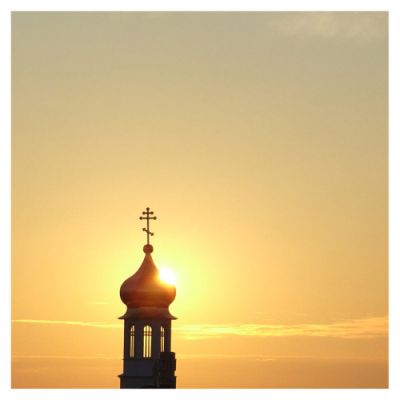Spiritual growth is essential to the Christian life, for if we agree that there is no such thing as instantaneous salvation we must then see how faith implies a life-long commitment to the progress that the saints call “theosis.” Through the gift of the Holy Spirit, we enter into a new life in Christ and are transformed back into the divine image to which we were originally created. As the Holy Apostle Paul writes, “Do not be conformed to this world but be transformed by the renewal of your mind, that you may prove what is the will of God, what is good and acceptable and perfect.” (Romans 12:2).
In addition to this, it must be emphasized that spiritual growth involves our participation in the sacramental life of the Church. In particular, it is the sacraments of Baptism and Chrismation that reveal the key to how this spiritual transformation is effectively realized. The gospel declares, basically, that if we die with Christ, the Holy Spirit shall raise us up with Him to an altogether completely new life, and it is here that we find the essence of the baptismal life.
Even more importantly, it is the sacraments that prove to us how this new life of Christ is not something to be seen strictly as a future promise, (as “the big pie in the sky after we die”), but something to which we are called to participate in the here and now. For those of us in the Orthodox Church, then, our triple immersion in the waters of baptism becomes both the “picture and pattern” of growth, healing, and salvation. Perhaps this is why, in the New Testament, the very substance of God’s Kingdom appears, not in any of the existing social or political constructs (to the dismay of most of Jesus’ contemporaries!) but in the hearts of those believers who see and accept Jesus as He truly Is, as the Messiah of Israel. All of the sacraments, and for that reason, become what the scriptures speak of as a “guarantee” of blessings to come. “For what no eye has seen, nor ear heard, nor the heart of man conceived, what God has prepared for those who love him, God has revealed to us through the Spirit.” (1 Corinthians 2:9-10).

But here we note that the sacraments are not supernatural in the magical sense, as if just by performing them they might automatically affect anything useful. Instead, the sacraments reveal their inner power only when we as believers participate in their work by an act of choice. Each of them is inductive in that they invite us to join them in their mystery of salvation. For example, Holy Baptism invites us to freely participate in the mystery of the daily drowning of our sin so that our hearts might be brightened and cleansed. The same is true for the sacrament of Chrismation in that it invites us to turn the whole of our lives into a single great prayer offered to the Father by Christ through the unceasing Pentecost of the Holy Spirit.
Understood from the perspective of a “picture and pattern,” the sacraments thereby affect a type of “spiritual therapy” that is at the heart of the Church’s life, and without which as we have already affirmed, there can be no spiritual growth. Here we draw a valuable parallel from the world of medicine. In my tenure as an Orthodox priest, I have seen many of my faithful healed from serious forms of heart disease. When a man or woman undergoes cardiac by-pass surgery, his or her cardiologist not only performs the surgery itself, but also demands that the patient participate in a comprehensive therapeutic program that is focused on full recovery. This “therapy” includes the re-educating of the patient in a proper diet and a regular discipline of physical exercise. In short, the patient had to stop eating salty-fatty foods and once and for all forsake his or her previous “sedentary” lifestyle. And in all of these patients whom I visited, there was no question about whether they would participate in this new, healthy-lifestyle therapy. Everyone, physician, nurse, patient, family-member, knew that this therapy was a non-negotiable, i.e., it was “do it or die.”
The sad fact of the matter is that when it comes to the realm of the soul, there are few who see such any correlation whatsoever. Rather, the majority of our people have what I call a totally “loosey-goosey” attitude regarding the growth and healing of the inner man of the heart. Herein lies the reason why we fail to progress in the faith.
For after all these years, isn’t it true that we are still infants in the faith? “For though by this time it would be right for you to be teachers, you still have need of someone to give you teaching about the first simple rules of God’s revelation; for you have become like babies who have need of milk, and not of solid food” (Hebrews 5:12).
















